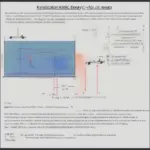Imagine this: you’re at the airport, bags packed, ticket in hand, ready for your dream vacation to Maui. Suddenly, you remember you need to show proof of a negative COVID-19 test. Panic sets in – did you schedule that PCR test in time?
As travel restrictions evolve, navigating COVID-19 testing requirements can feel like navigating a maze. One common question we hear at travelcar.edu.vn is, “Are at-home COVID tests allowed for travel?”
Let’s break it down:
Understanding At-Home COVID Tests and Travel
The short answer is: it depends. While convenient and often more affordable, not all at-home COVID-19 tests are created equal in the eyes of airlines and destination countries.
Types of At-Home Tests
- Rapid Antigen Tests (RAT): These tests offer quick results, often within 15 minutes, and are readily available at most pharmacies. However, they might not be accepted for travel due to potentially higher inaccuracy rates compared to PCR tests.
- At-Home PCR Tests: These tests generally offer higher accuracy than rapid antigen tests. They often involve sending a saliva sample or nasal swab to a lab for analysis, with results typically available within 24-72 hours.
What to Check Before You Go
1. Destination Country Requirements
Before you even book your flight, thoroughly research the entry requirements of your destination. Some countries may require a PCR test taken within 72 hours of departure, while others may accept a rapid antigen test taken within 24 hours.
Travel Tip: Visit the embassy website of your destination country for the most up-to-date travel advisories and COVID-19 testing requirements.
2. Airline Policies
Airlines also have their own set of regulations. Some airlines may have partnerships with specific telehealth providers for verified at-home testing, while others may only accept tests administered by a healthcare professional.
Travel Tip: Check your airline’s website or contact their customer service for specific information on accepted COVID-19 tests.
Here’s an example of what an at-home COVID test kit may look like:
3. Test Verification and Documentation
If your destination country or airline accepts at-home tests, ensure you choose a test that offers a verifiable result. This often involves a telehealth professional supervising your self-test via video call and providing a digital or printed document with your results and relevant travel information.
Travel Tip: Keep a digital copy of your test results readily accessible on your phone and print out a few hard copies to keep with your travel documents – just in case!
Navigating At-Home Tests: FAQs
Here are some of the most common questions we receive:
- Can I use any at-home test for travel? No, not all at-home tests meet the requirements for travel.
- What is a proctored test? A proctored test involves a healthcare professional virtually supervising your self-testing process to ensure accuracy and provide a verifiable result.
- Where can I find approved at-home tests? Many pharmacies sell at-home tests that meet travel requirements. You can also check with telehealth providers like eMed or Azova.
This is an example of how a telemedicine app might be used for a proctored test:
Planning Your Trip with Confidence
While navigating COVID-19 travel restrictions might seem daunting, a little planning goes a long way. At TRAVELCAR.edu.vn, we’re committed to providing you with the information you need to travel safely and confidently.
Ready to explore the world again? Check out our articles on Are Home COVID Tests Accepted for Travel to the US? and Should I Travel With COVID? for more helpful tips.
Remember, staying informed and prepared is key to enjoying a smooth and stress-free journey!
The COVID-19 test result may look like this:

